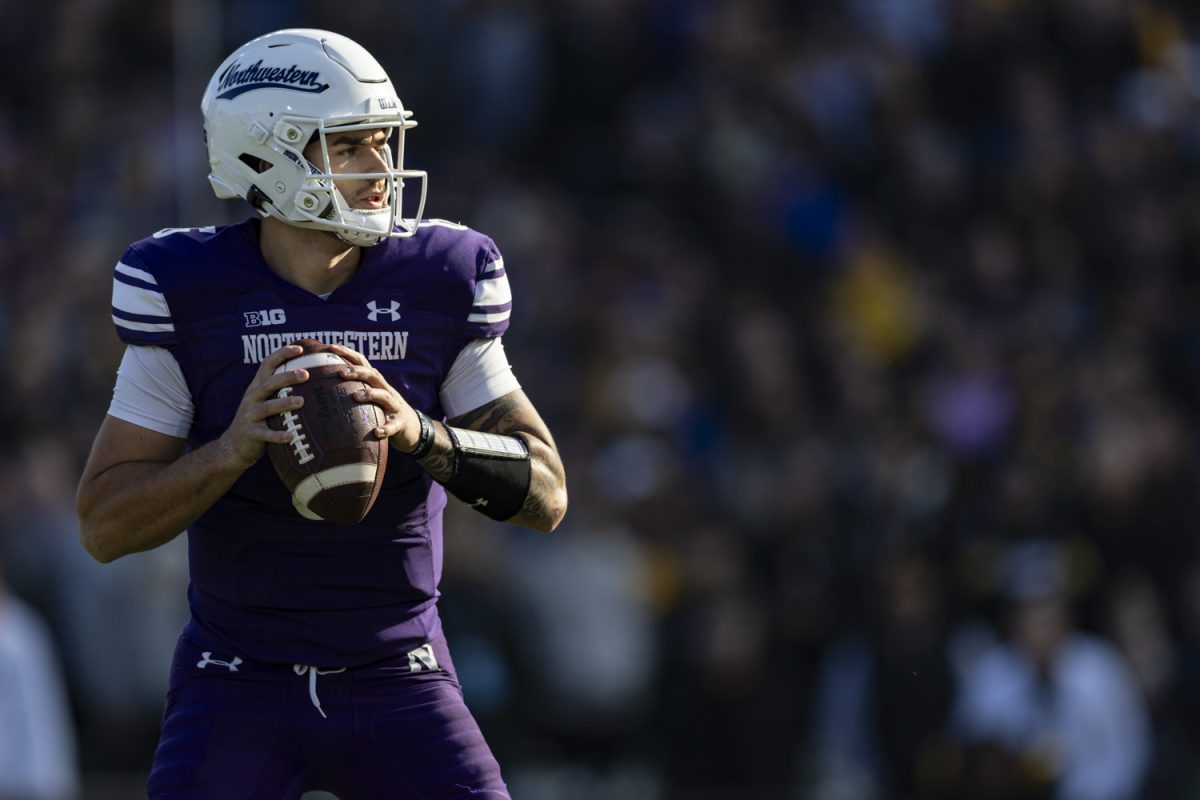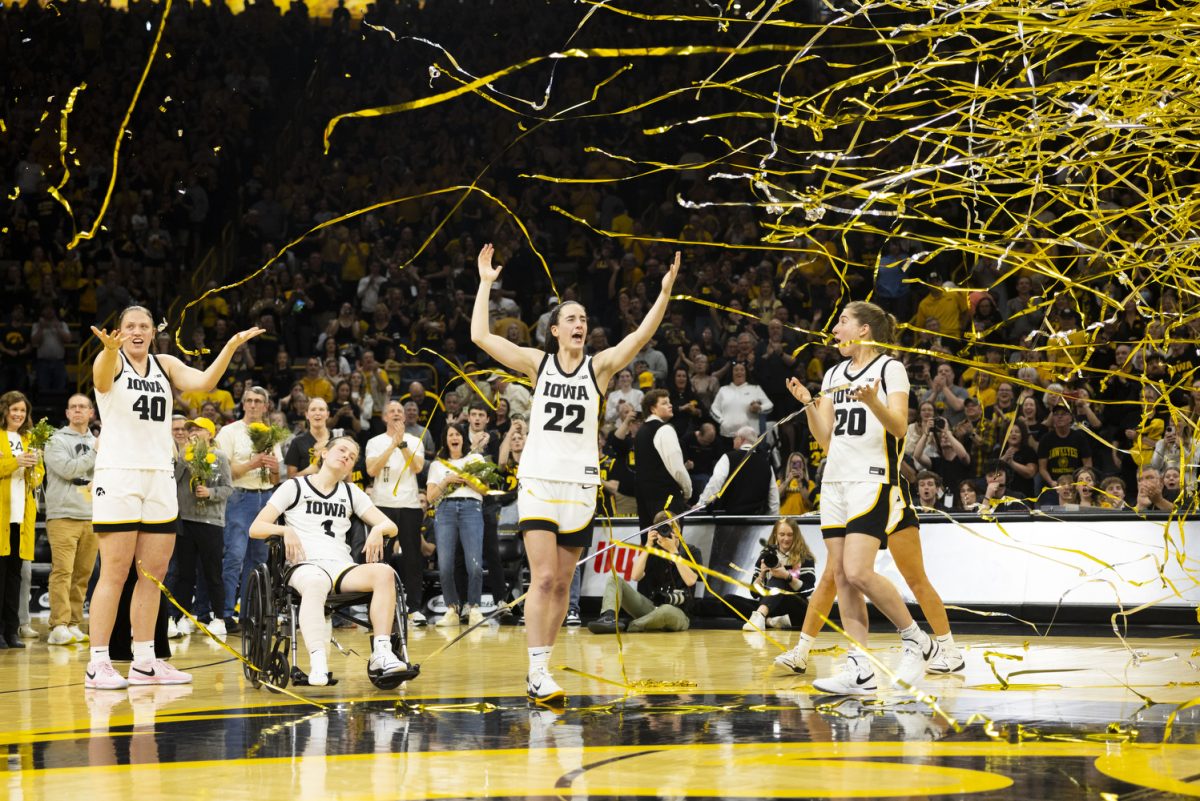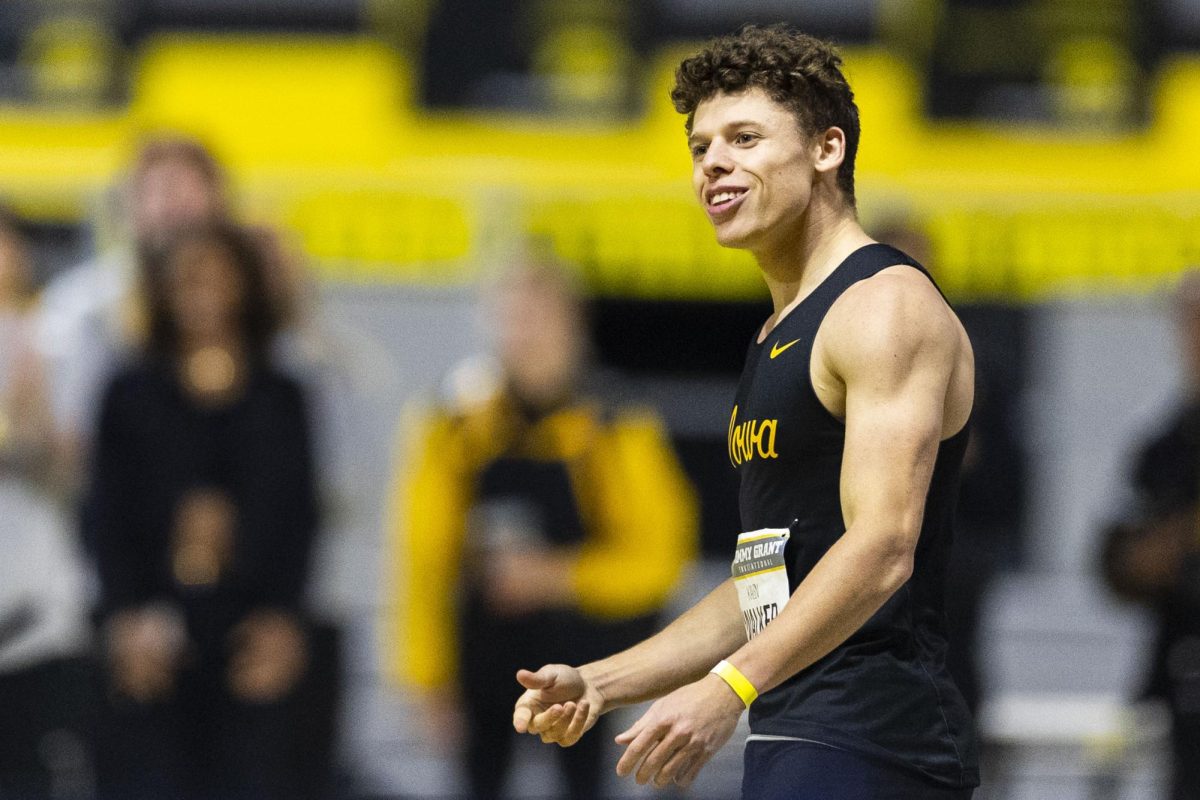For student-athletes, there are often stereotypes attached that it’s sports first, education second, or “athlete-student.” For the No. 20 ranked Iowa men’s swimming team, that’s not the case.
Many of the swimmers boast advanced majors. Of the 35 men on the roster, seven study engineering, five are pursuing business, and five more are on a pre-medical career path. Psychology and biology are other popular majors.
Iowa swimming head coach Marc Long said the high amount of discipline that comes with being a swimmer is the reason many are pursuing challenging career paths. He also said it’s because of the fact that they’re driven to do well in and out of the pool.
The Black and Gold have two-a-day practices year-round that account for 20 hours of swimming each week. For junior Kyle Noser, an engineering major, he said he spends an additional 20 hours of schoolwork outside of his classes on top of his vigorous swimming schedule.
With so many athletes on the team pursuing difficult careers, Noser said it’s the result of the examples and expectations that have been set for them when they first come into the program. He said that so many swimmers before them have shown that it is possible to balance both swimming and school.
“People coming in know that it’s possible to do it with swimming,” Noser said. “Our expectations are to maintain that 3.0 GPA, and I think with recruiting, we look for swimmers who are like that and who are coming here for academics, because we’re here for academics first.”
Long agrees that it starts in the recruiting process, and the staff members look at the type of student that they are. It usually helps reflect their future success at Iowa.
“You will not be able to keep up in the training environment in any D-1 athletics, in any of the training environments,” he said. “You’ll not be able to keep up if you’re not a serious student and that’s why you’re here.”
For sophomore Grant Betulius, another engineering major, falling behind was never an option, and being able to balance education with athletics is something he has long grown familiar to.
“It’s something that I’ve always known and everybody on the team has,” the Naperville, Ill., native said. “It’s something that you have to do as a student-athlete. You don’t really have an option. While it can be tough at times, it’s something that you’ve become accustomed to.”
With the upcoming Big Tens, the swimmers will expect to miss at least three days of classes, but they prepare for it long in advance with their professors.
Not only is it beneficial for the swimmers to stay on top of their schoolwork, it also allows them to perform to the best of their abilities. The bus rides prior to meets are filled with student-athletes studying, something the head coach encourages.
Long said that it’s important for them to schedule everything in advance with their professors so that when it comes time for Big Ten’s they have one less thing to worry about.
“I want them to communicate [with professors] and get that all worked out as best they can so when [swimmers] step up to race they can clear their head a little bit,” Long said. “Then they can go right back and study some more.”
Betulius agreed that staying on top of schoolwork helps to enhance their performances and that once they get on the bus for Big Tens, they try to have a clear mind while forgetting about school for a week.
“I think our coaches do a really good job of putting academics first and staying strict on that,” Noser said. “Really, for most college athletes after college there’s no athlete left there’s just student, and on to the real world.”






